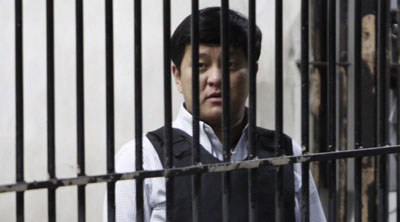International press freedom groups, including CPJ, have released a new, in-depth report into the November massacre of 30 journalists and two media support workers in Maguindanao province, Philippines. The 32-page document questions why roughly 100 gunmen believed to be involved in the election-related killings have yet to be arrested, and it emphasizes the need for international groups to closely monitor the investigation and court proceedings.
“The massacre underlines the terrible dangers that Filipino journalists face. It also highlights the inability and unwillingness of the state to ensure the protection and safety of journalists who are seeking to perform their duties,” the international mission members said in a statement announcing the report’s January 23 launch. “This massacre, coming at the very beginning of the 2010 election process, not only undermines that process but has dealt a cruel blow to democracy and free media in the Philippines.”
The report compiles the findings of a December 5-10 mission led by the International Federation of Journalists. The delegation (in which I participated as CPJ’s representative) met with victims’ family members, local journalists, prosecutors, diplomats, and government officials. Our joint report, Massacre in the Philippines: International Solidarity Mission Rapid Assessment, builds on the initial findings of four local groups–the National Union of Journalists of the Philippines, the Philippine Center for Investigative Journalism, the Freedom Fund of Filipino Journalists, and MindaNews–which conducted an on-the-ground investigation immediately after the November 23, 2009, killings, which claimed 57 lives in all. The Philippine union was instrumental in arranging the itinerary for our 10-member international delegation.
The international mission’s findings include a detailed timeline of events on the day of the massacre, along with an account by a journalist who turned back from the convoy. It will add to the growing store of evidence and testimony being compiled against Datu Unsay Mayor Andal Ampatuan Jr., who has been detained and faces multiple murder charges over his alleged role in the crime. He has pleaded innocent, claiming that the killings were actually perpetrated by his political opponents. His lawyers are seeking his release on bail.
Authorities say the killings were motivated by political clan rivalries. The journalists were accompanying a convoy of people traveling to Shariff Aguak, the provincial capital, to file gubernatorial candidacy papers on behalf of political clan leader Esmael Mangudadatu, an Ampatuan rival.
The joint mission report raises concerns about the government’s handling of forensic evidence at the massacre site and cites fears that the legal proceedings will be compromised in light of President Gloria Macapagal-Arroyo’s political ties to the Ampatuan clan. It questions why authorities have yet to arrest any of the estimated 100 gunmen—many believed to be local police officials—who ambushed the convoy. The gunmen led those in the convoy to a remote area in the town of Ampatuan, shot them, and then dumped their bodies into pits that had been prepared ahead of time.
Underscoring concerns of a possible official whitewash, the report highlights the role of Maj. Gen. Alfredo Cayton, commander of the 6th Infantry Division in Maguindanao province at the time of the massacre. A local journalist had requested that the military provide security for the convoy, a request that Cayton denied. He was relieved of duty in the immediate aftermath of the massacre, but has since been promoted to vice commander of the Armed Forces of the Philippines.
The joint mission report stresses the need for independent international observers to monitor the investigation and court proceedings. As the media spotlight fades, it’s essential the international community maintain pressure on the administration of President Arroyo and that of her successor to ensure that justice is served.
Shawn W. Crispin is CPJ’s senior Southeast Asia representative.
